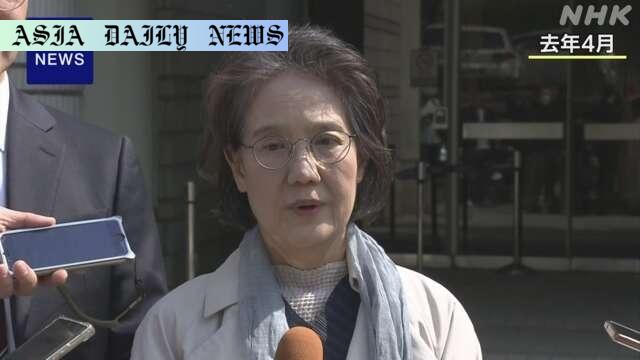Comfort Women: South Korean court lifts the decade-old order against the book ‘Comfort Women of the Empire,’ restoring academic integrity.
- A South Korean court has annulled a decade-old 2015 order tied to the book ‘Comfort Women of the Empire.’
- The book was previously edited, as sections were considered controversial, but has now regained its original form.
- The court’s decision restores these sections, citing academic freedom over censorship concerns.

Annulled Decision Restores Academic Freedom
In a landmark decision with significant implications for both history and academic freedom, a South Korean court this week annulled a provisional order from 2015 that censored portions of the controversial book, “Comfort Women of the Empire.” Authored by Park Yu-ha, a professor emerita at Sejong University, the book delves into the deeply complex and contested history of wartime “comfort women” and their association with the now-defunct Imperial Japanese military. While contentious in its arguments, particularly its characterization of the relationship between the women and the Japanese military as that of “comrades,” the text was defended as a work of academic scholarship.
The decision to annul the provisional publishing restrictions, issued nearly a decade ago, signifies a strong reaffirmation of academic freedom. It also highlights the delicate balance between preserving the dignity of historical victims and ensuring freedom of expression. When the order was initially imposed, the South Korean legal system mandated the removal of 34 sections deemed inflammatory or inappropriate, effectively altering the text’s narrative. Park’s acquittal of defamation charges in 2022 has now paved the path for restoring her book to its unedited, original form.
Historical and Political Context
The subject of “comfort women” remains one of the most contentious and emotionally charged issues in East Asian history. The term refers to women—primarily from Korea—who were forced into sexual slavery by the Japanese military during World War II. The legacy of this chapter in history continues to sour relations between South Korea and Japan, with ongoing debates over reparations, acknowledgments of guilt, and the framing of the state’s responsibilities.
Park’s book stands apart from conventional narratives on comfort women, opting instead to address the topic through an unorthodox lens. Critics have argued that her work downplays the coercion involved, while supporters contend it offers an alternative perspective critical to academic discourse. Regardless of individual interpretations, the debate surrounding this book underscores the complexities of reconciling historical reflection with modern sensitivities.
The Implications of Academic Freedom
Beyond the specifics of the case, the court’s ruling is seen as a victory for the principle of academic freedom in South Korea—a country where historical scholarship often intersects with politically charged issues. Academic work is meant to provoke thought, challenge established norms, and foster dialogue. The reinstatement of Park’s original text aligns with this ideal, even if the content remains polarizing to some readers.
Park Yu-ha’s decade-long legal battle is a testament to the resilience scholars can demonstrate when defending intellectual and academic liberties. Her social media statement following the ruling expressed relief and hope that the book would serve as a starting point for open and nuanced discussions about history, memory, and institutional responsibility.



Commentary
The Broader Implications of Park Yu-ha’s Legal Victory
The annulment of the provisional order against Park Yu-ha’s “Comfort Women of the Empire” is not just a legal decision; it is a profound statement about academic freedom and its intersections with social and political dynamics in South Korea. The ruling goes beyond the specific content of the book, bringing into question the limits of censorship and the role of scholarship in challenging deeply-held beliefs.
Striking a Balance Between Sensitivity and Censorship
One cannot overlook the emotional weight surrounding the histories of comfort women. For many South Koreans and victims’ families, this is not just a historical debate—it is a lived and ongoing source of pain. However, banning or altering academic works stifles conversation and diminishes the very complexities scholars aim to address. While parts of Park’s work might be viewed as contentious or insensitive, her legal victory serves as a reminder that historical inquiry need not always conform to popular or dominant narratives to be valuable.
Academic Freedom Is Crucial to Advancing Understanding
Academic freedom is the cornerstone of innovation and intellectual growth. Suppressing ideas, even those considered unpalatable, hinders the evolution of dialogue and mutual understanding. It is important for societies to provide spaces where challenging ideas can be debated on their merits, not censored for their potential to offend.